IT企業に就職=「技人国ビザ」が必要です
多くの留学生が目指す「IT企業への就職」。しかし、就職するだけでは終わりません。フルタイムで働くには、在留資格「技術・人文知識・国際業務」(通称:技人国)への変更が必要です。学生ビザのままでは週28時間のアルバイトしか認められず、卒業後の継続勤務はできません。
Many international students aim to work for IT companies in Japan. But getting a job offer is just the beginning. To work full-time after graduation, you must switch to the “Engineer / Specialist in Humanities / International Services” visa—commonly known as the Gijinkoku visa. With a student visa, you are only allowed to work part-time (up to 28 hours per week), and you cannot continue full-time employment after graduation without changing your status.
どんな仕事でも対象になるわけではない
「IT会社に入ればビザは出る」と誤解している方もいますが、実際には職務内容が要件に合致していなければビザは認められません。たとえば、コールセンター業務、修理対応、単純なデータ入力などは「専門性がない」と判断され、不許可になるリスクがあります。
Some people mistakenly believe that any job in an IT company will qualify for a visa. However, unless your job duties meet the visa criteria, your application may be denied. For instance, call center tasks, hardware repair, or basic data entry are often considered non-specialized and may lead to rejection.
専門性と学歴の関連性が重要
ビザ審査で重視されるのは、「専門的な業務」であること、そして「学歴と業務内容が関連していること」です。情報系の学部を卒業してプログラマーとして働くなど、明確な整合性がある場合はスムーズです。文系出身でIT業務に就く場合には、補足資料や説明が求められることもあります。
The visa screening focuses on whether the job is specialized and whether it relates to your academic background. If you majored in computer science and work as a programmer, the connection is clear. If you have a humanities degree and work in IT, you may need to provide additional documentation or explanations.
文系出身でもIT就職は可能。ただし準備が必要
最近では、文系出身でもITスキルを独学や職業訓練で身につけて就職する人も増えています。ただし、ビザの観点からは「学歴との整合性」を補うため、資格証明やカリキュラム、実務経験の説明などを用意する必要があります。
These days, many liberal arts graduates enter the IT field through self-study or training programs. However, from a visa perspective, you’ll need to provide additional documents—such as certifications, course descriptions, or proof of relevant experience—to demonstrate that your background supports the job.
日本語力はビザより「職場」で求められる
技人国ビザの取得に「日本語能力試験N1」などの資格は必須ではありません。出入国在留管理庁の公式要件にも記載はありません。ただし、職場でのコミュニケーションに日本語が必要な場合、企業から「会話レベルはN3相当以上を希望」とされることが多く、ビザに直接関係しなくても、就職活動には日本語力が影響します。
JLPT N1 or other language qualifications are not required for the Gijinkoku visa itself—this is confirmed by the Immigration Services Agency. However, in actual workplaces, Japanese communication is often essential. Many companies expect a conversational level equivalent to JLPT N3 or higher. While not a visa requirement, Japanese proficiency greatly affects your job-hunting success.
ビザ変更が不許可になる理由とは?
「内定をもらったのに不許可だった」という声もあります。その多くは、業務内容が曖昧であったり、学歴との整合性が説明できていなかったり、企業側の理解不足による書類不備が原因です。採用企業にも制度理解が求められます。
Some applicants say, “I got a job offer, but my visa was denied.” This often happens when the job description is vague, there’s no clear link to the applicant’s academic background, or the employer doesn’t fully understand the visa system. Employers, too, must be properly informed about the requirements.
卒業の1年前から準備を始めよう
在留資格変更には数ヶ月かかることがあります。卒業直前に焦るのではなく、3年制なら2年生の後半、2年制なら1年生の後半から準備を始めましょう。希望する企業の仕事内容がビザの要件を満たすかを早めに確認することが重要です。
Changing your visa status can take several months. Instead of rushing after graduation, start early—second semester of your second year in a 3-year course, or the latter half of your first year in a 2-year course. Make sure the company and job role you’re aiming for meet the visa requirements in advance.
「こんなことで相談していいの?」
—— 大丈夫です! あなたの不安に丁寧に向き合います
フジ行政書士事務所では、日本で暮らす外国人の方が安心して生活できるよう、ビザのことはもちろん、手続き・仕事・暮らしの中で感じる不安や悩みにも寄り添っています。
「誰に相談したらいいか分からない」そんなときこそ、フジ行政書士事務所にご相談ください。
あなたにとっていちばん良い形を、一緒に考えていきます。
※LINEをご利用でない方は、▶ お問い合わせフォームはこちら からもご相談いただけます。


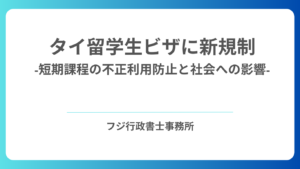
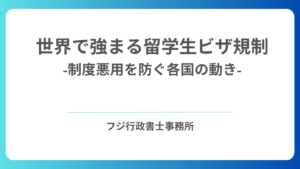
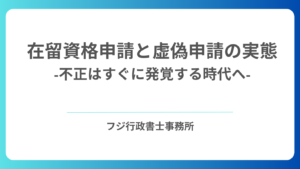
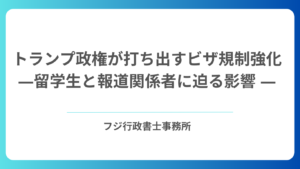
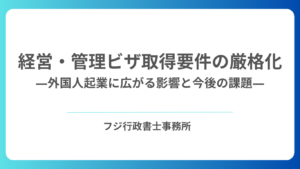
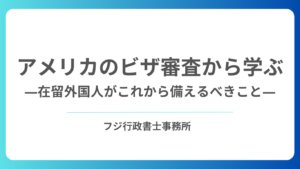
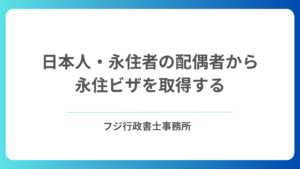
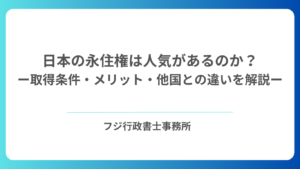
コメント